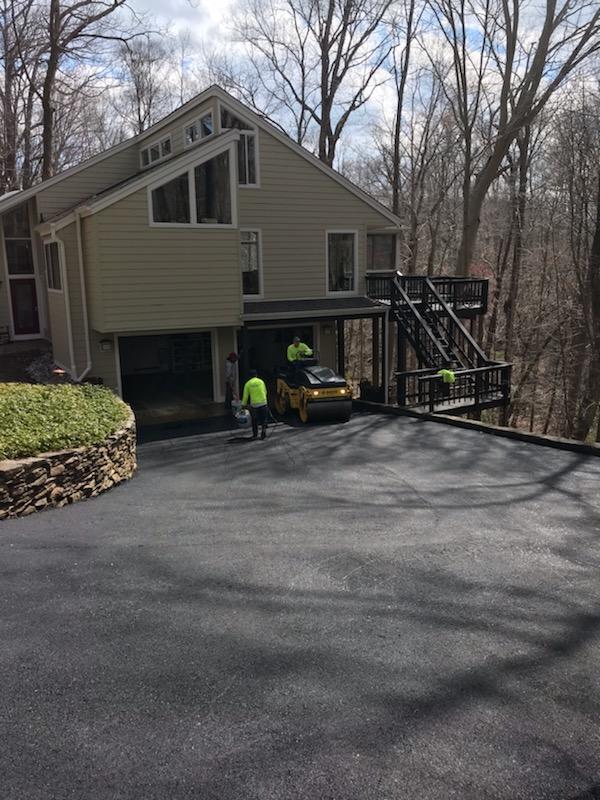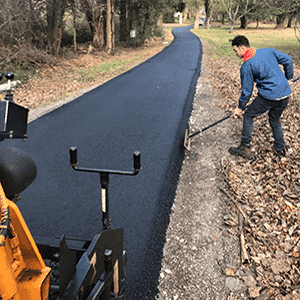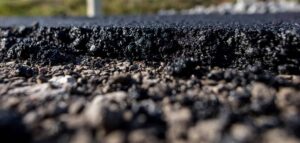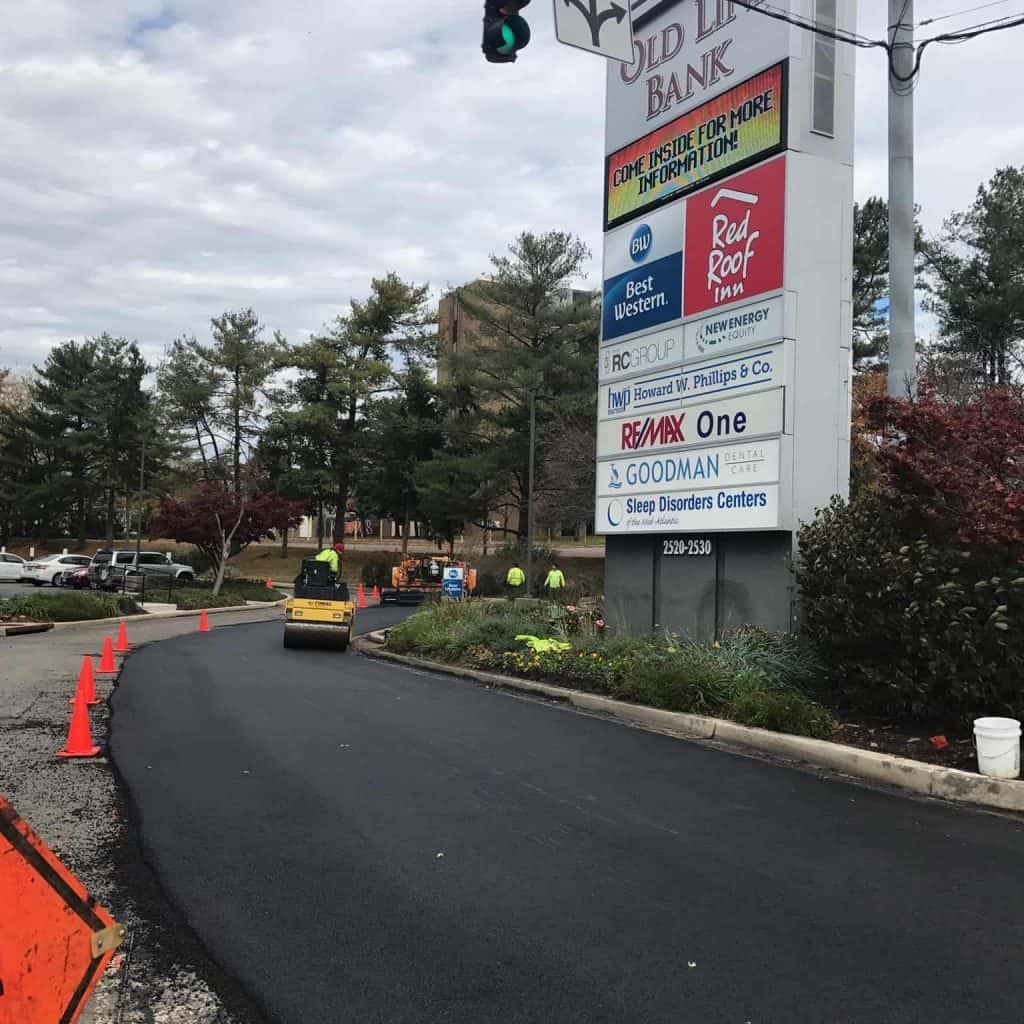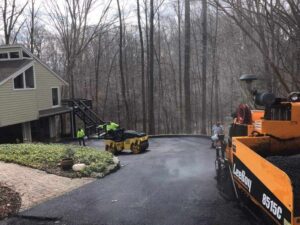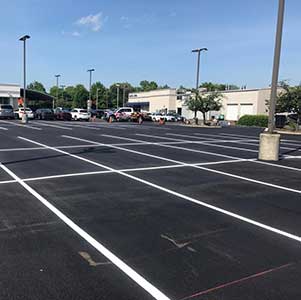Due to its porous nature, winter time can be harsh on asphalt, especially new asphalt. When we say that asphalt is porous, it can absorb water from the environment. As water enters small cracks in your paving, it then has the opportunity to freeze and expand. As water expands, it can create cracks or develop existing cracks further. However, you can help prevent further damage to your asphalt by caring for it properly. Please read about our winter care tips for your asphalt driveway.
Avoid Metal Shovels
As snow and ice accumulate on your driveway, it does need to be removed, but if you shovel it yourself, avoid using a metal shovel. Metal shovels can scratch and damage the top layer of your asphalt or create divots that can spread into cracks.
We recommend you use a lightweight plastic shovel and shovel early to prevent the snow or ice from building up into thick layers. Also, shovel from a low angle instead of a steep angle to avoid damage.
Use De-Icing Products Sparingly
De-icing products can contain a large number of chemicals that can damage your asphalt driveway and the environment. If you do need to use a de-icing product, avoid using rock salt, which has been proven to damage the asphalt’s surface.
Hire a Snow Removal Service
If you do not have time to remove snow and ice from your driveway or prefer not to have to do it yourself, hire someone to do it for you. A professional will also know what types of de-icer are appropriate for your driveway and how to treat it without damaging the surface.
Hiring a professional service will also ensure that the snow and ice are quickly removed because they can use plows attached to vehicles or other large equipment. We recommend that you discuss with them that they use their blades at ¼ inch above the surface of your asphalt to prevent damage.
Don’t hire just anyone, though. Instead, talk to friends and neighbors to find someone reputable and ask for local references.
Clear All Debris
One of the most straightforward solutions to help your driveway stay clear and thaw faster is to be proactive about debris. Throughout the autumn months, it is common for debris such as fallen leaves, limbs, needles, and other stuff to collect on the surface of your drive. All of these will collect moisture and freeze when temperatures drop. Debris on your driveway also prevents the sun from penetrating the surface, resulting in longer ice. Keeping your driveway clear of trash is a simple solution to avoid ice and snow buildup.
Know the Signs of Asphalt Failure
Inspect your driveway often during the winter, and note any areas where small cracks or potholes are forming. A newly laid driveway should not show any of these signs; if they are showing up, you could be maintaining it incorrectly. If cracks and divots are already on your existing drive, pay attention to them because they can be treated in the spring.
Preventative Maintenance with Sealcoating
Get your driveway seal coated as soon as it is ready after it has been installed, or every three to five years if you have existing asphalt. Sealcoating is the best preventative maintenance for the colder months. It fills in small areas of cracking and provides a barrier against snow and ice. However, seal coating has to be applied when it is warmer.
If you notice issues with your asphalt driveway, don’t hesitate to contact your local paving contractor. Here at Capital Paving & Sealcoating, we always offer free estimates, and the earlier we know about your issue, the better! We provide excellent service and help you maintain your asphalt investment, so don’t wait to contact us today.

